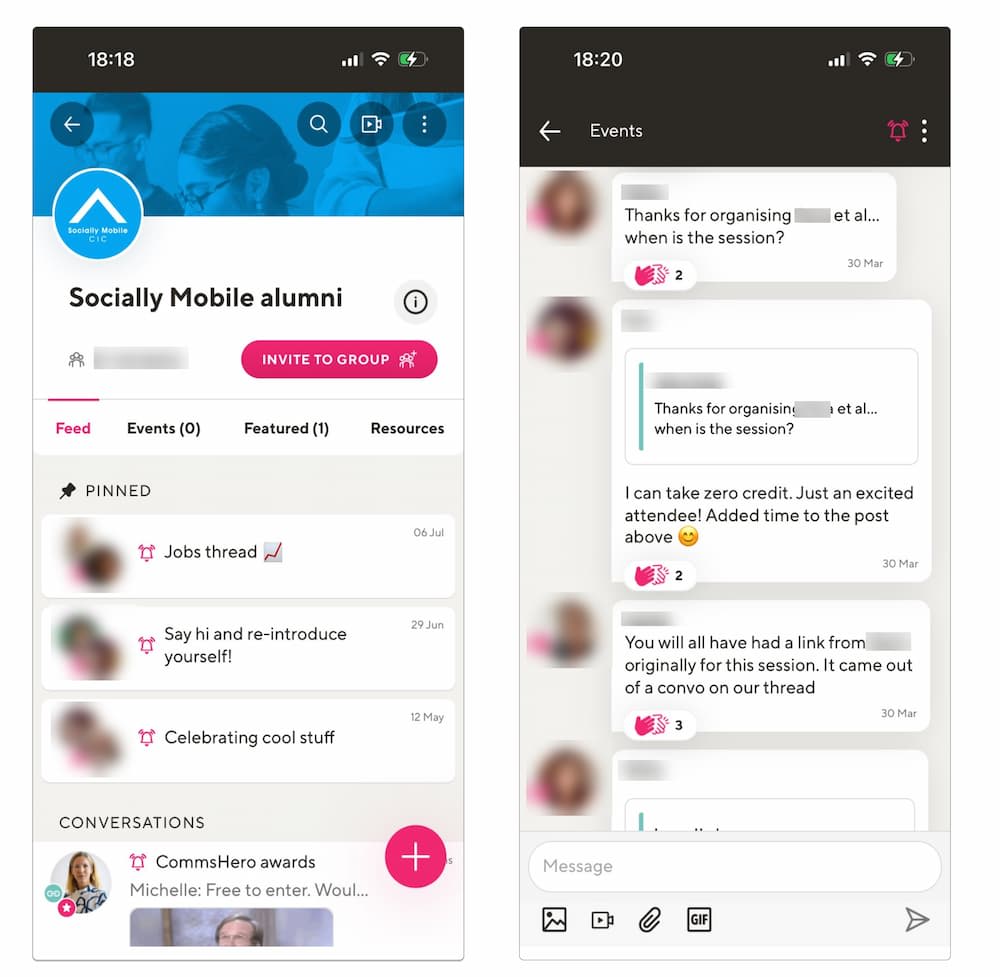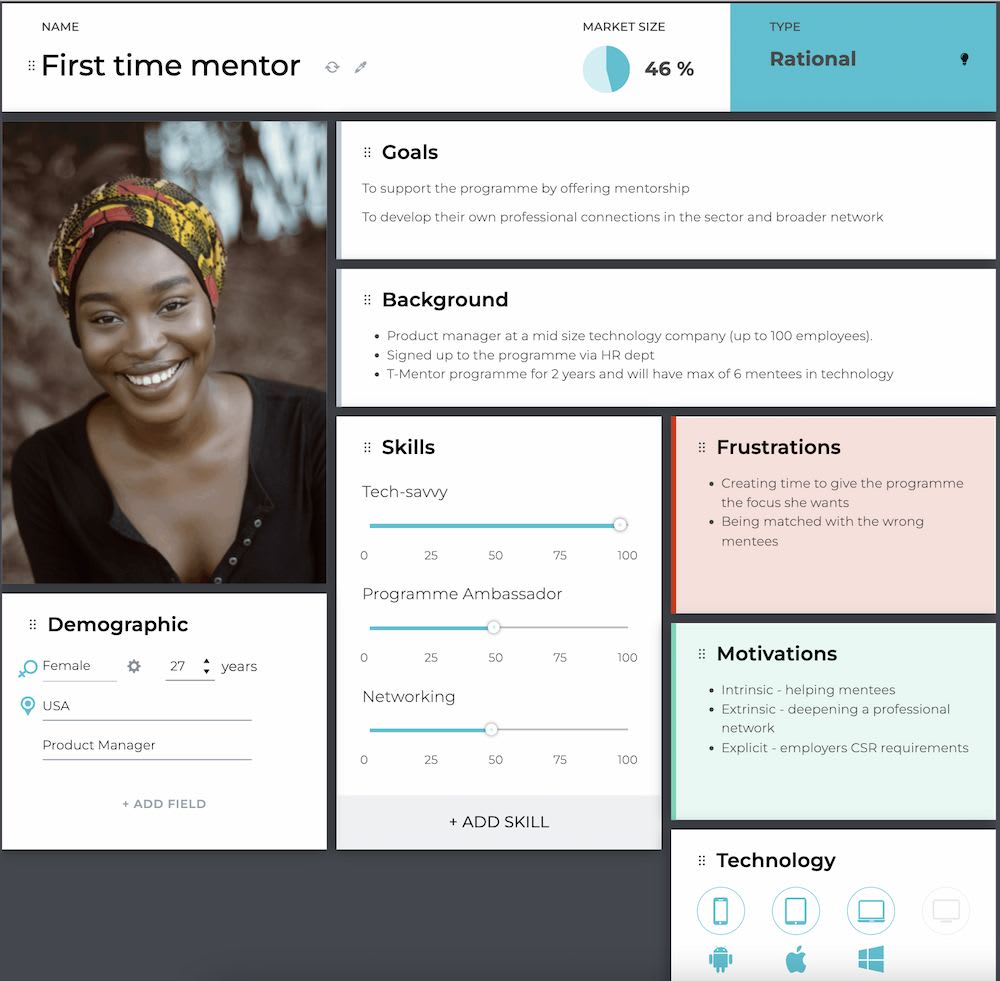Community building takes dedication, effort, and a deep understanding of what members need. After investing all that work, all those hours of nurturing, member departures can sting.
But even the most successful communities lose members from time to time. And that’s OK. Not all departures are bad.
Think about it: We graduate from schools; leave cities to pursue new jobs; walk out of grocery stores with carts full of food.
Sometimes we leave because we have what we need. The diplomas are in our hands. The grocery list is checked off. And sometimes we leave because we didn’t find what we were looking for. The local job market let us down and we sought out greener pastures.
The same is true for your community members.
As people leave your community, it’s so important you understand their reasons. Are they leaving because they got what they needed or because they didn’t? The clues to your future success are hidden in the difference.
Above all, treat your departing members with grace, respect, and curiosity. And then, get curious. Design an offboarding process that can give you insight into why your members are leaving and what you can do about it.
A community is an organic thing - it is literally made up of people. Living things aren’t supposed to stay the same forever. A test-and-learn approach keeps your community evolving to meet the needs of its members over time.
Reach out to offer support
When someone cancels their membership, there’s probably a window of time before the cancellation takes effect. That window is your opportunity to reach out one-to-one with a resources and support call.
Sometimes, that little bit of personal attention is all a member needs to keep them engaged.
Maybe they’re frustrated or their growth has stalled. This is your chance to offer the additional guidance and resources they need to get going again.
Maybe they’re experiencing a challenge in their personal life. Your outreach could pull them out of their overwhelm and remind them of how valuable the community’s support can be.
Maybe they need a “light” version of membership. If you can downsell someone who wants access to content but doesn’t care about live events, for example, you can keep them in the fold. And the new lower-priced tier can help you grow by serving other people like them.
Celebrate graduations
Sometimes, a member's departure means they have outgrown their need for the community. Rather than dwelling on their absence, celebrate their progress and accomplishments.
Recognize that your community played a role in their journey and take pride in their success. This attitude fosters a sense of positivity and encouragement within the community.
Invest the time to analyze the actions that star member took on their journey to transformation. Can you incorporate any of those steps into your ideal member journey?
Create an Alumni Community to elevate departing members
I’m a big fan of elevating successful members into mentors or alumni.
There's incredible value in those members who feel they have graduated. Celebrate that and create a way to keep them in your world.
Inviting departing members to stay on as alumni shows them you value their contributions and want to maintain a positive relationship with them, even after they leave.
You might offer alumni exclusive access to content, events, or networking opportunities. By creating channels for them to share their thoughts, suggestions, and ideas, you tap into a unique perspective that can inform the future direction of your community. Even if it’s not a significant boost to the bottom line, you’ll get firsthand insights into ways to improve the community from a longtime member’s point of view.
Alumni can further enhance the community by collaborating with you on special projects or initiatives. Their expertise and experience can prove remarkably valuable to the community members coming up behind them.

Assess needs and expectations
Departures can also indicate that members' expectations have shifted. You need to keep your finger on the pulse of conversations and identify whether your community is meeting members' evolving needs.
Automated surveys and one-on-one exit interviews can provide valuable insights into why people are leaving. By leveraging these tools, you can gain a deeper understanding of your community's strengths and areas that need improvement.
Use this information to refine your offerings and ensure that you continue to provide value to your members.
Adapt for ideal members
If a departing member fits your ideal customer profile and is not receiving the expected value, it's time to take a deep breath and reflect on your community's shortcomings.
The departure of an ideal member is a wake-up call to assess and refine your strategies, content, or services. You created your community with specific people in mind. Consider whether it is still meeting that core group's expectations.
Embrace the opportunity to adapt and improve, ensuring that your community remains a valuable and fulfilling space for your ideal members.

Let go of non-ideal members
Not every departing member will fit the mould of your ideal customer. While it may be disheartening to see them go, it's essential to acknowledge that your community may not have been the right fit for them.
Embrace the philosophy of quality over quantity. Focus on attracting and retaining members who align with your community's vision, goals, and values.
By letting go of non-ideal members, you create space for those who will truly benefit from and contribute to your community's growth. And you enhance the experience for all members by creating a curated environment where they can encounter like minds.
If you find you’re saying goodbye to a lot of non-ideal members, it’s time to ask why your community is attracting the wrong audience. Make sure your external messaging targets your ideal members and that your value proposition is crystal clear.
Embrace change and growth
Member departures can be catalysts for transformative change within your community. As you gather insights from surveys and exit interviews, you will uncover valuable clues about areas that need refining.
A community is an organic thing - it is literally made up of people. Living things aren’t supposed to stay the same forever. A test-and-learn approach keeps your community evolving to meet the needs of its members over time.
From that point of view, change is a good thing. It’s a sign your community is alive and flourishing.
Learn, grow, thrive
When someone leaves your community, it's important to approach the situation with grace, respect, and curiosity.
Celebrate their growth and success, recognizing the role your community played in their journey.
Look for areas you could improve to better meet member needs and expectations. Support and delight ideal members and let go of those who do not align with your vision. Embrace change as an opportunity to grow and enhance your community.
You don’t need to worry or panic over member departures. Your departing members are your teachers. They have valuable lessons you can apply to build a stronger, more vibrant community.
About the author

Join a community for community professionals
Guild is home to a large community of strategists, community managers, social media experts and other professionals who share their experience and knowledge about all things community strategy.
Join Laura and >1200 global community professionals.
Request to join Professional Community Leaders, a free online community and centre of excellence for professional community strategy and practice.
Or apply to join Guild Community Collective, a free online community for community and social media professionals, however experienced you are.
Share best practices, ideas, inspiration, interesting content and resources. Get feedback from the group on ideas and initiatives, develop partnerships and make useful contacts and connections.
We run virtual, in-person and hybrid events in both communities where we hope many of you will be able to meet.


More about community strategy
How to align community to your organisation or business goals
The complete guide to the online community lifecycle
Onboarding online community members
Community Strategy - the different types of online community
33 ways to create engagement in your online community
Why we need to ban the term 'lurker' in community strategy
What are rituals and how do they help online communities?
Building your own managed community with Guild🤝
See for yourself how the Guild experience is different to WhatsApp, Slack, LinkedIn or Facebook Groups.
Guild is a safe space to connect, communicate and collaborate with others.
Join us on a platform that is purpose-built for creating groups, communities and networks on mobile.